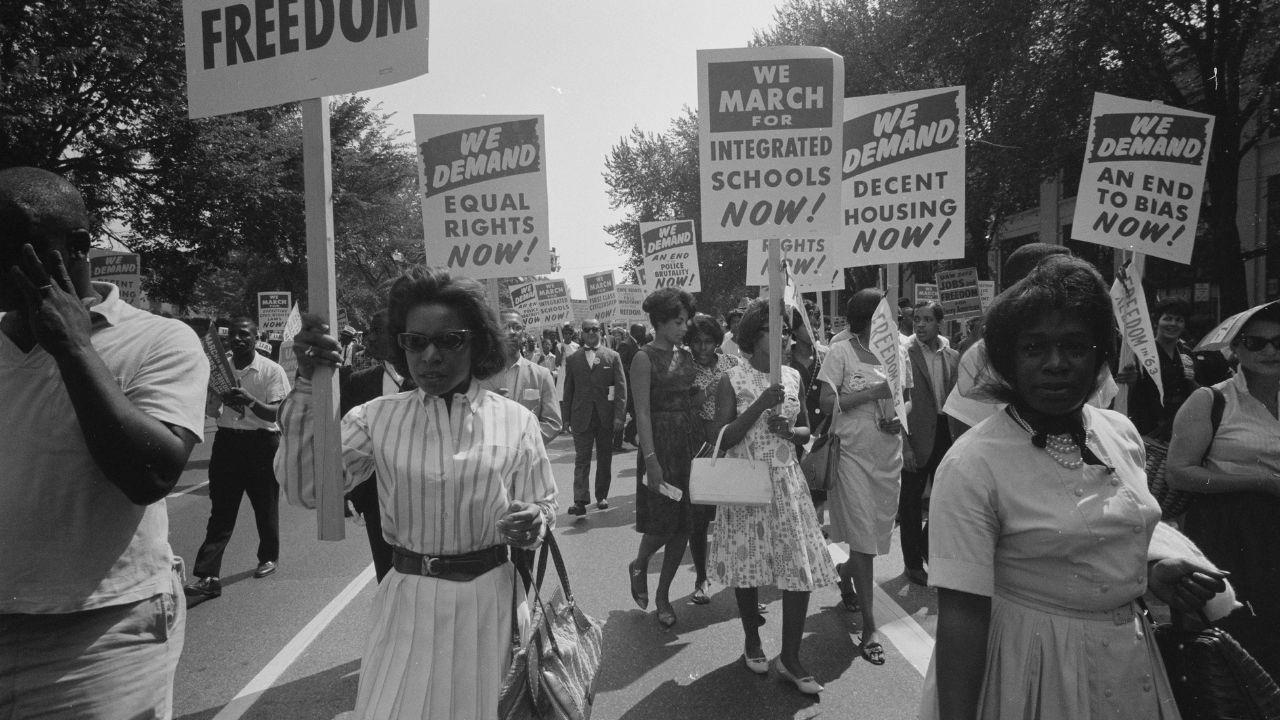The American Civil Rights Movement stands as a watershed moment in the struggle for equality and justice, profoundly shaping the course of the nation’s history. Spanning several decades, this transformative movement sought to dismantle the systemic racial discrimination that plagued the United States, and to secure civil rights for African Americans and marginalized communities.
The roots of the Civil Rights Movement can be traced back to the post-Civil War era, when Reconstruction efforts aimed to empower newly freed slaves. However, it was during the mid-20th century that the movement gained significant momentum, spurred by a combination of factors including racial segregation, disenfranchisement, and institutionalized discrimination.
One of the pivotal figures in the Civil Rights Movement was Dr. Martin Luther King Jr., whose powerful oratory and nonviolent approach became emblematic of the struggle. His leadership and advocacy for equality resonated deeply, mobilizing individuals across the nation to demand an end to racial segregation and discrimination.
The movement witnessed seminal events that galvanized public support and brought the issue of racial inequality to the forefront of national consciousness. The Montgomery Bus Boycott, sparked by Rosa Parks’s refusal to surrender her bus seat to a white passenger, showcased the power of nonviolent resistance and grassroots activism. The March on Washington in 1963, where Dr. King delivered his iconic “I Have a Dream” speech, marked a watershed moment, epitomizing the movement’s vision for a more inclusive and just society.
The Civil Rights Act of 1964 and the Voting Rights Act of 1965 stand as legislative landmarks of the movement, bringing about sweeping changes and guaranteeing equal rights under the law. These monumental achievements, however, were not the culmination but rather catalysts for further progress, as the fight for civil rights expanded to address issues of economic inequality, housing discrimination, and systemic racism.
The legacy of the Civil Rights Movement is multifaceted. It led to a profound transformation in the legal and social landscape of the United States, dismantling segregation and discriminatory practices. The movement’s impact reverberated far beyond its immediate goals, inspiring subsequent movements and shaping a broader discourse on human rights and social justice.
Yet, challenges and disparities persist. The struggle for equality and racial justice continues, as systemic inequities persist and new forms of discrimination emerge. The Civil Rights Movement serves as a reminder that the fight for justice is an ongoing endeavor that requires constant vigilance, collective action, and the commitment to confronting and dismantling entrenched systems of inequality.
In conclusion, the American Civil Rights Movement remains an indelible chapter in the nation’s history—a testament to the power of collective action, resilience, and the unwavering pursuit of justice. It represents a critical milestone in the ongoing struggle for equality, reminding us of the importance of confronting and eradicating prejudice and discrimination in all its forms.
Crossword Puzzle in Context
All the word you need to finish the crossword below can be found in the article above. Build you vocabulary bank and have fun!












0 Comments